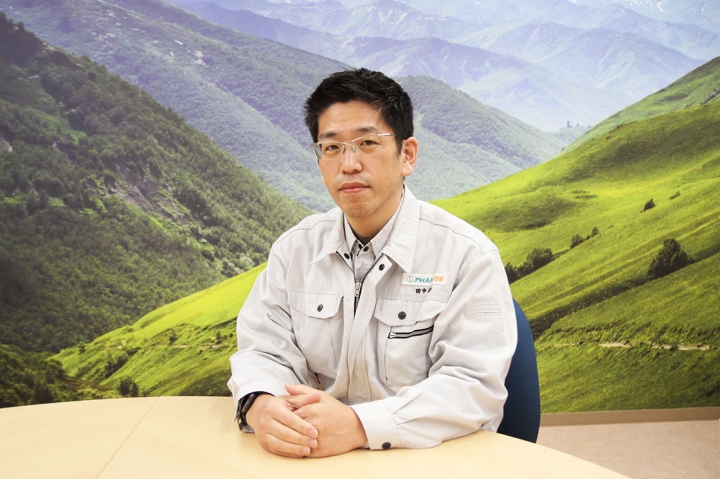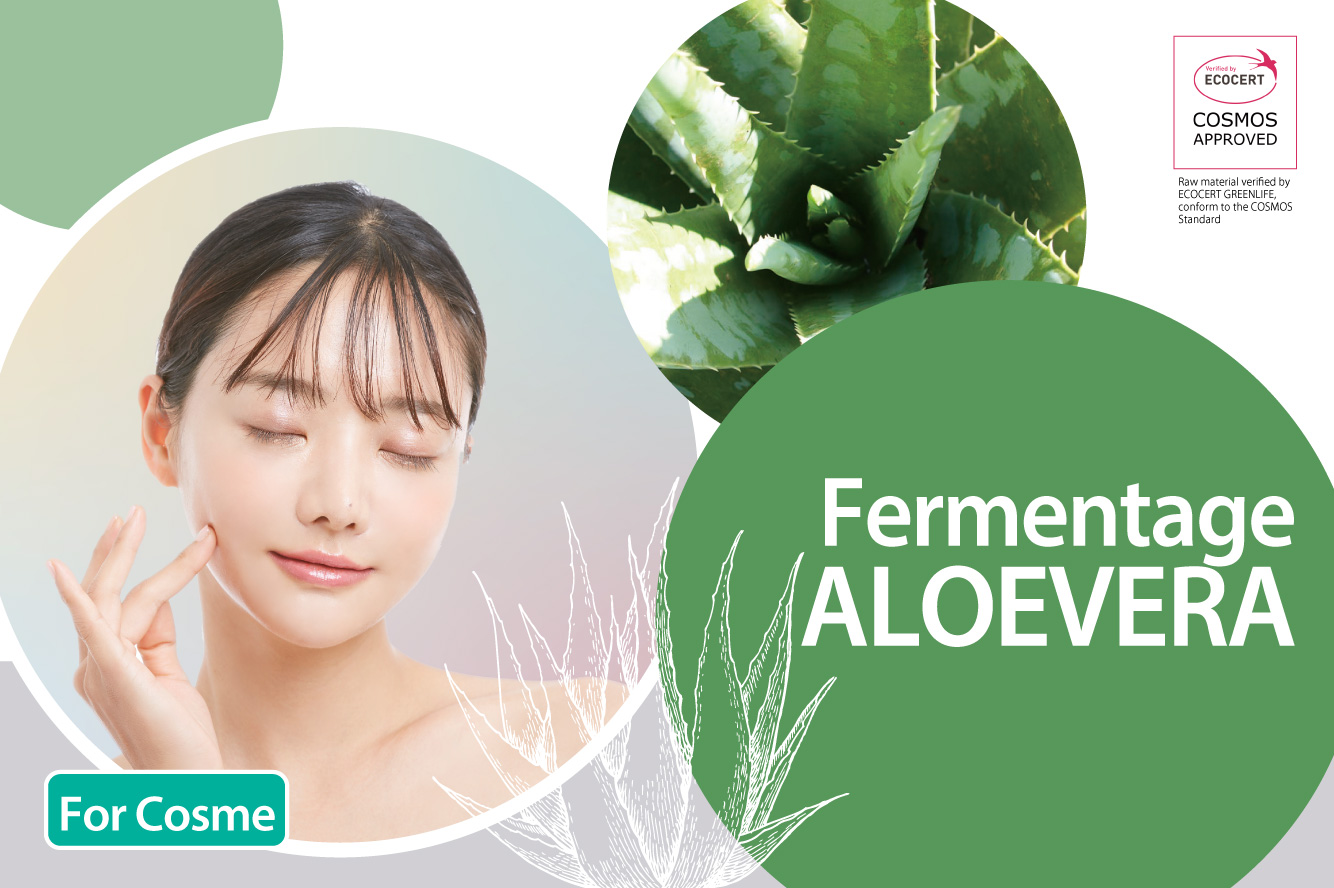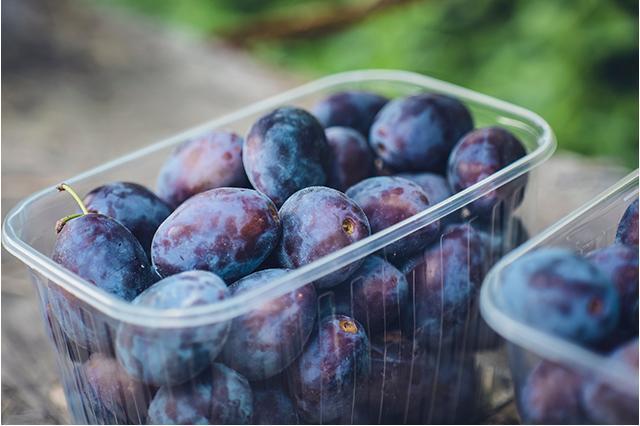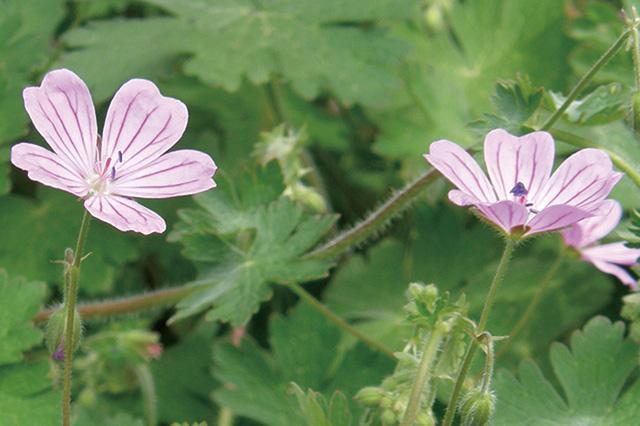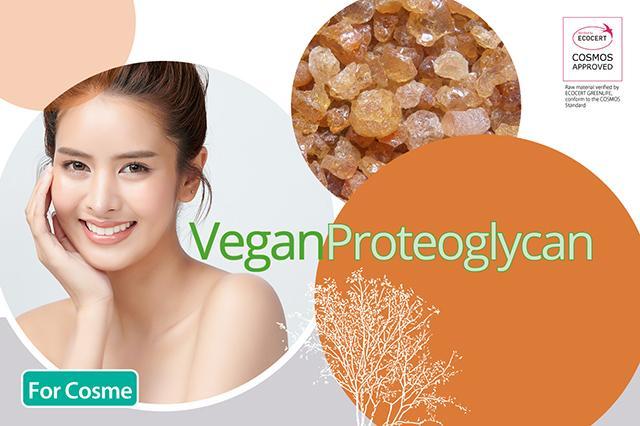Using our cosmetic expertise to tackle a research topic pursued by medical researchers around the world
Researchers in Medicine and other fields all over the world have focused their attention towards NF-κB (Nuclear Factor kappa B) as a research topic. The reason it has gained such popularity lies in the fact that NF-κB is considered to be a transcription factor for genes that cause cancer, rheumatism, atopic dermatitis, and other ailments. And the first person to conduct a research on this topic from a beauty perspective was Dr. Tanaka. He started with basic research in order to uncover how NF-κB acts from a dermal physiological point of view, and what would be an effective way to handle it. His research ultimately led to a discovery of a cosmetic ingredient that would counteract NF-κB.

Using our cosmetic expertise to tackle a research topic pursued by medical researchers around the world
Researchers in Medicine and other fields all over the world have gravitated towards NF-κB (Nuclear Factor kappa B) as a research topic. The reason it has gained such popularity lies in the fact that NF-κB is considered to be a transcription factor for genes that cause cancer, rheumatism, atopic dermatitis, and other ailments. And the first person to conduct a research on this topic from a beauty perspective was Dr. Tanaka. He started with basic research in order to uncover how NF-κB acts from a dermal physiological point of view, and what would be an effective way to handle it. His research ultimately led to a discovery of a cosmetic ingredient that would counteract NF-κB.
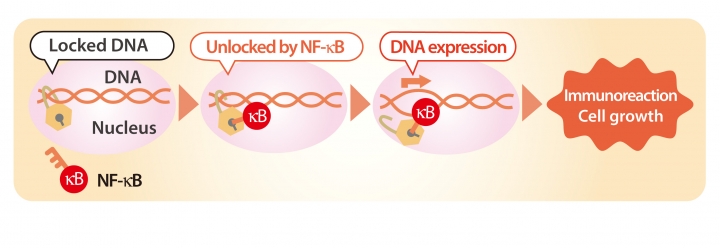
Zooming in on the transcription factor NF-κB from a beauty perspective for the first time
This research and development project was launched by focusing on a genetic transcription factor called NF-κB.
The human body is built from information stored in approximately 22,000 genes. The right genes working at the right time and transcription factors are the key in regulating this activity. NF-κB is one of the major transcription factors, but it is excessively activated due to inflammations and so forth, leading to an abnormal expression. Cancer, rheumatism, atopic dermatitis and other ailments are thought to be linked to this abnormal expression, and developing an NF-κB inhibitor has garnered global interest. Although the medical world has been keenly aware of NF-κB, it had almost been completely overlooked by the beauty industry, which is one of the reasons our company was motivated to focus on this topic.
Our initial hypothesis was that aging and inflammation of the skin were also caused by excessive activation of NF-κB, inducing skin problems. The research went one step further to determine whether suppressing or enhancing its activation would be effective for skin issues.
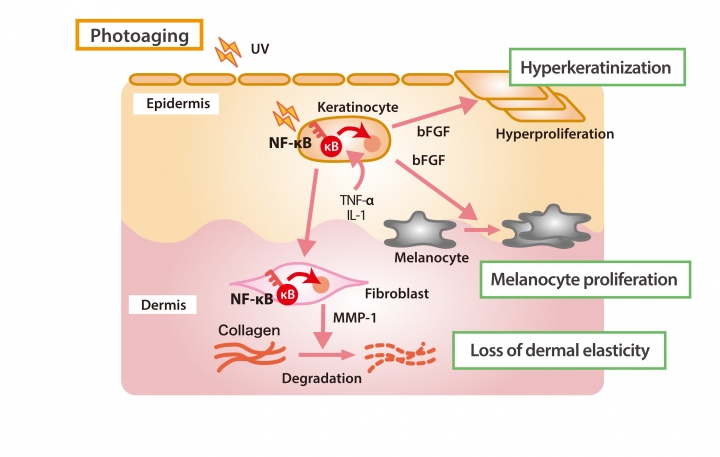
NF-κB was the culprit in skin photoaging!
In order to further research on NF-κB, developer Dr. Tanaka enrolled in Graduate School of Medical Sciences at Nagoya City University while working for ICHIMARU PHARCOS. And he conducted a basic research for four years under the guidance of a professor who was well-versed in this transcription factor. On his research, he uncovered the fact that NF-κB in the epidermal cells and fibroblasts are excessively activated when the skin is irritated by UV exposure or inflammation. This in turn causes photoaging of the skin, such as the thickening of epidermis, pigmentation due to increase in melanocytes, and loss of elasticity due to the degradation of corium collagen. Furthermore, he discovered that an NF-κB inhibitor was effective in preventing and improving such photoaging of the skin. (Incidentally, Dr. Tanaka published a paper on this research, entitled "Prevention of the Ultraviolet B-Mediated Skin Photoaging by a Nuclear Factor B Inhibitor, Parthenolide," which earned him his doctorate in medical science.)

Discovering an NF-κB inhibitor in artichokes
Once the effects of NF-κB on the skin were revealed, it was time to apply this knowledge to the development of actual cosmetics. After repeating experiments over and over again to find the substance that acts to inhibit NF-κB transcription, one substance ultimately emerged: an artichoke extract. The team not only discovered that artichokes exhibited strong inhibitory action, but also that a chemical substance named cynaropicrin was the active component in them.
Artichokes are a vegetable that are mainly grown in Europe, but can also be found in other parts of the world. For the purposes of commercialization, regions and seasons that are ideal for producing artichokes with a high level of cynaropicrin were studied, and only artichokes grown in such conditions are procured. The research team takes pride in finding ingredients that have been grown in the most suitable regions during the most perfect season. In addition, artichokes are also used to make health foods, since eating them is known to have beneficial effects as well.
The product created by purifying this active ingredient was named Biobenefity, derived from the words "bio" for "life", and "benefit" for "blessing". It was released in 2006, and since 2010 it is still gathering a steady stream of fans.
